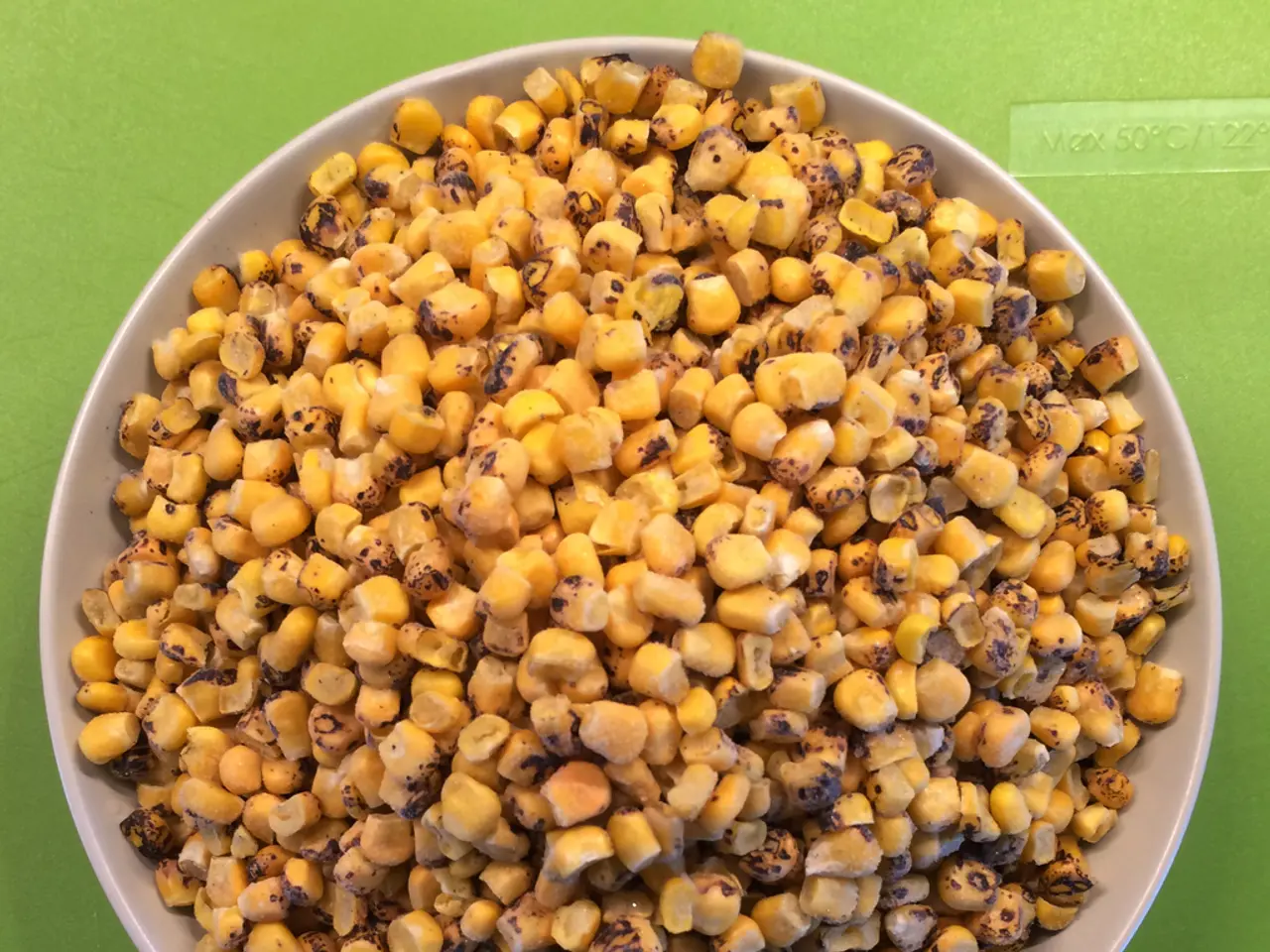Are Seed Oils Harmful? Insight into Their Impact on Health
Clearing Up the Hateful Eight Hubbub:
Ain't no supervillain gang here! The Hateful Eight is merely a group of controversial cooking oils that have been under fire recently. These oils, namely cottonseed, soy, sunflower, safflower, corn, rice bran, grapeseed, and canola, have been called out due to their high omega-6 fatty acid content. But before you chuck 'em out, consider this:
These oils aren't the devil in disguise; in fact, they could supply your body with the extra nutrition it craves.
Not Villains, but Vital Sources
According to Judy Simon, MS, RD, a dietitian nutritionist at the Nutrition Clinic at UW Medical Center - Roosevelt, seed oils are safe and can even be beneficial. They contain polyunsaturated fats and monounsaturated fats, which have heart-healthy properties. Monounsaturated fats can lower bad cholesterol, raise good cholesterol, and improve blood sugar, while polyunsaturated fats contain essential fatty acids like omega-6 and omega-3, crucial for your diet.
Some cooking oils, a few of the Hateful Eight, like flaxseed, hemp, pumpkin seed, sesame, sunflower, and safflower have more monounsaturated fats, an advantage over others. Plus, they have lower saturated fats, which are unhealthy and found in foods like butter, fatty meats, and cheeses.
Omega-6 and Inflammation: The Real Deal?
The arguments about polyunsaturated fats causing inflammation are a bit murky. While omega-6 fatty acids can cause inflammation when consumed in excess, this isn't the case with seed oils. In fact, studies show that dietary intake of linoleic acid (the primary omega-6 in seed oils) doesn't increase inflammatory markers in the blood[2][3]. On the contrary, linoleic acid may actually help lower the risk for cardiovascular disease, type 2 diabetes, cancer, and earlier death[1][2][5].
Hexane in Seed Oils: Another Myth?
The second concern about the Hateful Eight is the method used to extract the seed oils. Industrial extraction uses hexane, a petroleum-derived solvent. Some claim this leaves toxins from hexane in the seed oil, which you then ingest when you cook with it. However, while high amounts of hexane can be dangerous as a gas, its liquid form, used for seed oil extraction, evaporates during the process, leaving an extremely low or undetectable amount of hexane in the final product.
Seed Oils: Contextual Approach
It's important to remember the key to a healthy diet lies in balance. If you rely solely on seed oils in deep-fried or fast foods, your body won't appreciate it or the extra calories. Certainly, many of these foods are ultra-processed, which can increase health risks. However, a processed food isn't automatically unhealthy. Eating processed foods like flavored yogurt or store-bought, whole wheat bread is fine if balanced with a healthy, minimally processed diet.
The Bottom Line
So, don't be scared to cook your stir-fry or favorite dishes using your trusty seed oil. But if you want alternatives for healthy cooking oils, consider olive, avocado, or peanut oil.
In essence, seed oils, like the eight in question, are not the baddies here to ruin your health. Balanced with a healthy diet, they offer the taste and health benefits you've grown to love.
With Insights:The studies and expert analyses consistently show that seed oils do not cause inflammation and chronic diseases; rather, they are associated with reduced inflammation and lower cardiometabolic disease risk[1][2][3][4][5]. The scientific consensus is that high consumption of omega-6 fatty acids in seed oils does not cause inflammation and chronic diseases; instead, it is associated with improved, not worsened, inflammation and metabolic health markers[1][2][3][5].
- Mental health is greatly impacted by the nutrition we consume, and seed oils like those under scrutiny in the news, including cottonseed, soy, sunflower, safflower, corn, rice bran, grapeseed, and canola, can supply the body with essential nutrients.
- In health-and-wellness news, dietitian nutritionist Judy Simon argues that seed oils are safe and even beneficial, containing polyunsaturated fats and monounsaturated fats that have heart-healthy properties.
- Contrary to popular belief, science suggests that the high omega-6 fatty acid content in seed oils does not lead to inflammation, and these fats may actually help lower the risk for cardiovascular disease, type 2 diabetes, cancer, and earlier death.






